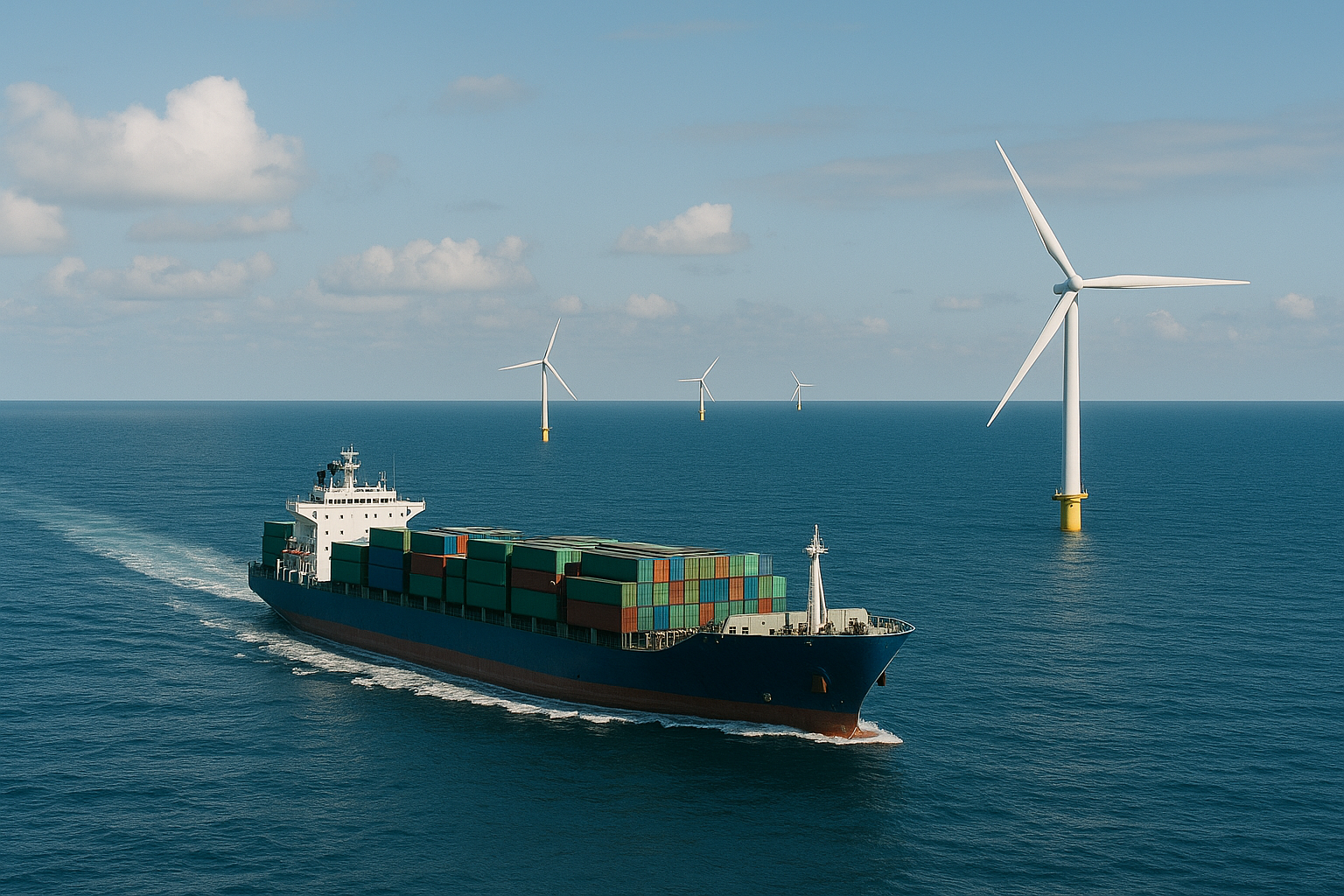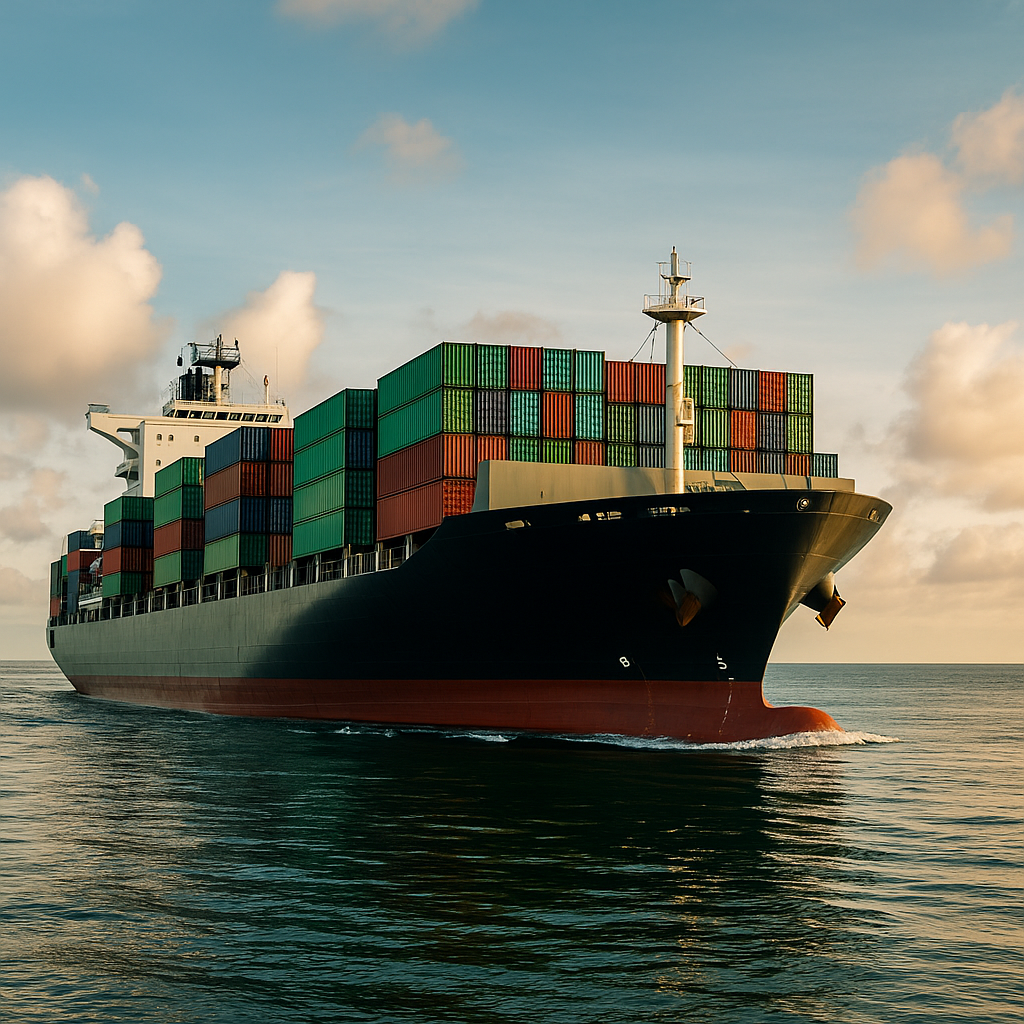A Green Revolution on the Horizon: Why Shipping Must Do More Than Meet the IMO's Net-Zero Goals
Exploring why the maritime industry needs to exceed IMO's net-zero targets and lead global sustainability efforts.
By Rita Abiodun
Maritime Sustainability Expert

Imagine a world where shipping doesn't just comply with international regulations but leads the charge in global sustainability efforts. A world where the industry that moves 80% of the world's trade does so in a way that protects our oceans, our climate, and our communities. That world isn't just a dream—it's a possibility, and the IMO's 2023 GHG Strategy is a roadmap for getting there.
But here's the question: Is doing the bare minimum really enough?
As the IMO sets ambitious targets—aiming for net-zero emissions by 2050, with key milestones like a 30% reduction by 2030 and 80% by 2040—shipping companies across the globe are being asked to meet these goals. It's a big step forward for an industry often criticized for its environmental footprint. However, while these targets are crucial, we should be asking ourselves: Can we do more?
The IMO's strategy is setting the stage for a greener future, but there's room for the maritime industry to go beyond just meeting international regulations. Think about it: What if every shipowner, every maritime innovator, every leader in the industry decided to aim for more than just meeting the IMO's net-zero goals? What if they went above and beyond, driving true transformation for the betterment of the planet and future generations?
The IMO's framework is undeniably a step in the right direction. It's setting up ambitious targets for carbon intensity reduction and for the adoption of alternative, near-zero GHG fuels. By 2030, it expects at least 5% of international shipping's energy to come from such sustainable sources. But why stop at 5%? What if the industry aimed for 20% or more, making a bigger impact than the regulations require?
"We have the tools, we have the knowledge, and we certainly have the innovation," says a leading maritime expert. "The question is, will we rise to the occasion and truly lead the way?"
This isn't just about meeting compliance standards—it's about redefining what it means to be a sustainable leader in a changing world. The IMO's strategy is just the starting point. The real challenge for the maritime industry is to push beyond the baseline, to create a shipping sector that is not just carbon-neutral, but actively carbon-positive—one that contributes to the planet's recovery, not just its survival.
The IMO's work with small island nations and least developed countries (LDCs) proves that sustainability is a shared responsibility. These nations are bearing the brunt of climate change's effects, yet they are often the ones with the least capacity to address it. Through programs that provide funding and support, the IMO is leveling the playing field. But this also highlights something important: If the maritime industry truly values its role in the global economy, it has to take on more responsibility, not less.
By investing in alternative fuels, carbon capture technologies, and energy efficiency measures—by going beyond compliance—we could turn the shipping industry into a global leader in carbon reduction, a model for other sectors to follow.
"Meeting the IMO's goals is a start, but let's not forget that the planet needs us to do more," says a passionate advocate for maritime sustainability. "This is our chance to make a lasting difference, not just in reducing emissions, but in the way we think about responsibility."
The IMO's strategy is a framework for change, but it's not the endgame. It's the invitation to the maritime sector to step up and be the change we all need. From embracing new fuels like ammonia and hydrogen to investing in cutting-edge technologies like onboard carbon capture, the maritime industry has the opportunity to become the trailblazer in the fight against climate change.
The truth is, the IMO can't do it alone. They've set the stage, but now it's up to all of us to play our part. So, I challenge you: Let's not wait for the bare minimum. Let's go above and beyond the IMO's targets for the greater good of humankind and the health of our planet.
As one industry leader put it, "The question is no longer if we can do this—it's how quickly we can get there, and how much further we can go."
And I believe we can go far.
Related Insights

Ebiere's Fight: Reclaiming the Future of the Niger Delta
A powerful story of one woman's fight against environmental degradation in the Niger Delta, highlighting the human cost of irresponsible shipping practices.
Read more →
Why Shipping Companies Need to Go Beyond Compliance: Embrace Responsibility for a Greener Future
A compelling call for shipping companies to exceed basic compliance and lead the way in environmental responsibility and innovation.
Read more →